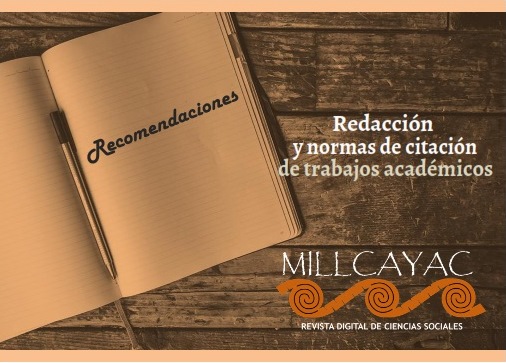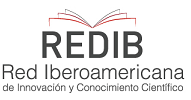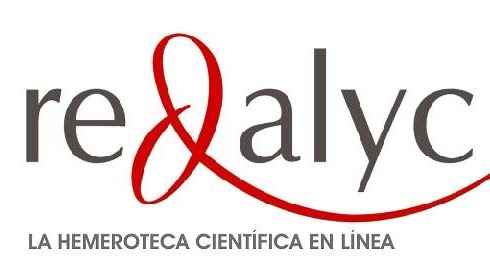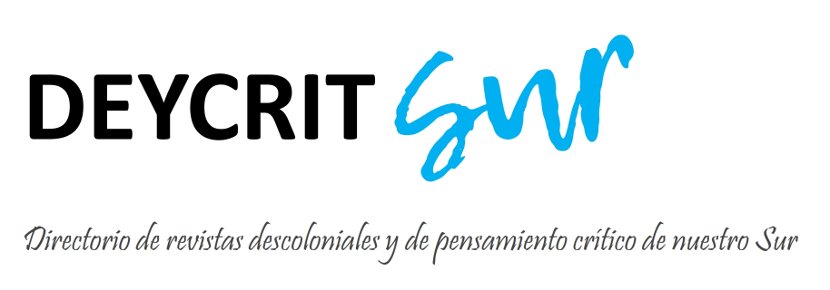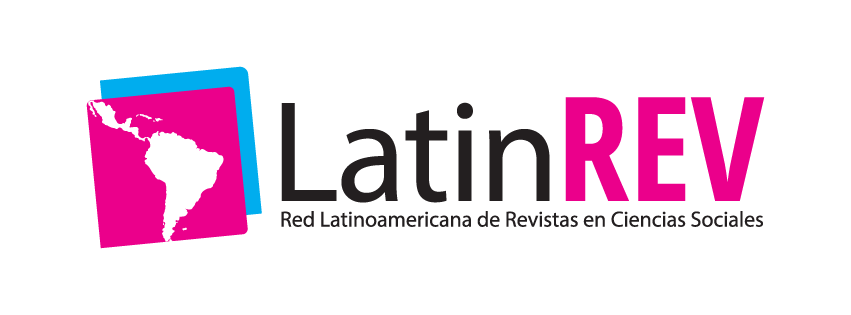About the Journal
Approach and scope
Millcayac - Digital Magazine of Social Sciences is a space of scientific promotion and dissemination of the classic and current discussions on the social sciences area. It is a refereed six-monthly scientific publication, in online digital format and with a frequency of two issues per year (published on March 1st and on September 1st). Millcayac proposes a space for critical dialogue driven by the following objectives: to contribute in the creation of a scientific culture, to socialize the results of studies that lead to the advancement of knowledge within these axes; to provide tools for the transformation of socio-cultural realities in their academic, scientific and political instances; and, finally, to promote the scientific research development of national and international authors in order to contribute to the debate in social sciences about relevant and priority issues to our Latin American societies.
This online publication constitutes the first space for debate and dissemination of the four thematic axes that are becoming consolidated in the scientific academic areas of this house of studies: State and Social Movements in Our America; Gender and Human Rights; Common goods and Society; Communication, Art and Culture. Each one of these concepts enable different thematic organizations and particular scientific enunciation modalities. Scientific articles, essays, book reviews, research progress, interviews and experience narratives traverse the pages of Millcayac. Furthermore, each issue of the magazine proposes a specific dossier regarding the main topics of the social Sciences today.
Original and unpublished articles of scientific research are published in Spanish, English, Portuguese, French and Italian; all papers are published in two languages (Spanish and English); this includes title, abstract and keywords. In addition, all works must comply with the Editorial Standards established by the Secretariat of Scientific Research and Publication.
The administrative and scientific organization is in charge of the Internal Editorial Team, responsible for the management, administration and edition of the magazine; a stable external Scientific Editorial Committee, integrated by experts with a well-known scientific trajectory both at national and international level in charge of the scientific evaluation of the works under a process of double-blind review system; Editorial Advisory Board, whose function is to define the editorial policies and control the quality criteria of the magazine; and an ad hoc evaluator group, external to the institution, summoned every year according to the subjects incorporated in each issue. The work carried out for the magazine is funded by the FCPyS.
Peer review process
The works, whether they are scientific articles, research advances, essays, book reviews, interviews or narratives of experiences that, according to the Editorial Advisory Board, respond to the publication themes and meet the established formal requirements, will be sent to two members of the Evaluation Committee (external evaluators) who will give their review ignoring the identity of the author.
The reception of a manuscript does not imply an obligation for its acceptance, nor any commitment regarding the publication. All work received will be initially reviewed by the Editorial Committee, which must verify the compliance with the editorial guidelines, as well as the suitability, originality and quality within a period of two weeks. If the manuscript does not comply with the criteria, it will be returned to the author in order to make the necessary changes to its possible publication.
Manuscripts that meet all of the guidelines exposed in the instructions for the authors will be sent to anonymous national and international peer evaluators (external to the publishing institution) selected taking into account the solidity of their professional-academic background and their knowledge in the referred subjects, who will carry out the double-blind peer evaluation process.
The review process consists of completing an evaluation grid where three possibilities are admitted: 1) Approved as it is, 2) Approved with modifications, and 3) Not approved. Furthermore, issuing opinions about the manuscript and the request of recommendations or clarifications are allowed.
If both evaluators express a positive opinion (approved or approved with modifications), the work will be included in the publication plan. If there is at least one review with request for modifications, the original is sent back to the author in order to make the necessary corrections within a period of four weeks. The Editorial Committee is in charge of thoroughly revising that the suggestions made by the Review Committee have been included.
If they express divergent opinions (approved/approved with modifications and not approved), a third member of the Review Committee will be consulted to arbitrate and make the corresponding editorial decision.
All the possible results are presented below, following the combination of the peer verdicts:
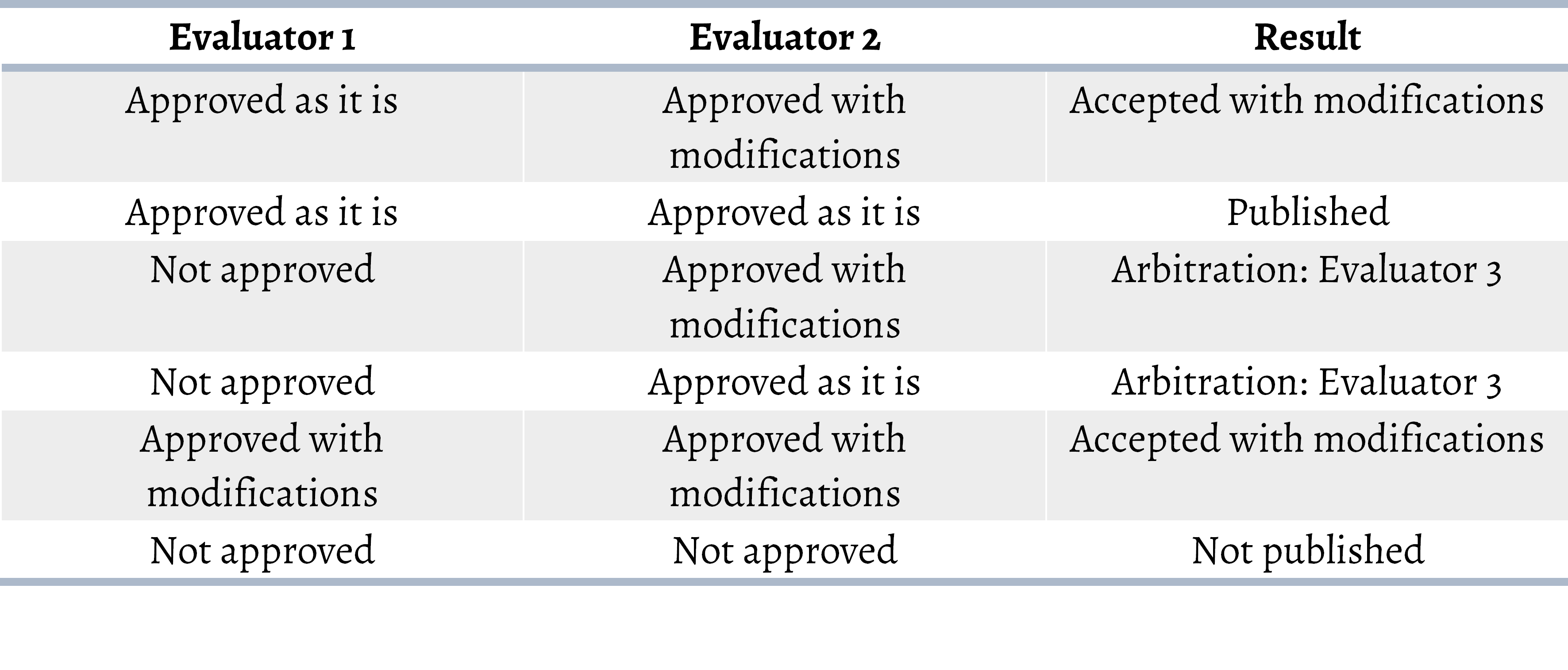
The usual established deadline for the reviewers to carry out their work is four weeks. In cases of controversy where the article must be submitted to a third referee, the evaluation process extends four more weeks. The estimated time of the evaluation process is not less than four weeks and no more than sixteen weeks.
The publication process of the articles is subject to the March and September editions. In case of being approved with modifications, the deadline for sending the relevant corrections once notified to its respective author/authors is two weeks.
The time of publication of the articles, after the revision process is completed, is not less than six weeks and not more than twenty four weeks.
Open access policy
This magazine provides open access to its content, based on the principle that offering the public free access to research promotes a better global exchange of knowledge.
Editorial Team
Director: Dra. Rosana Rodríguez
Editor in chief: Lic. Micaela Lisboa
Communication and image: Lic. Julieta Vignale
Text layout: Yamila Bulich
Translation spanish-english: Téc. Camila Berthold
Technical support: Sistema Integrado de Documentación (SID-UNCuyo), Ing. Juan Martín Longo y Bib. Adrián Méndez
Scientific Editorial Committee
Dr. Pablo Alabarces. Consejo Nacional de Investigaciones
Científicas y Técnicas. Universidad de Buenos Aires/Universidad Nacional de La Plata. Argentina
Dra. Teresa Elizabeth Cueva Luna. El Colegio de la Frontera Norte. México
Lic. Prof. Lidia Fernández. Universidad de Buenos Aires. Argentina
Dr. Julio Gambina. Universidad de Buenos Aires. Argentina
Dra. Beatriz Garrido. Universidad Nacional de Tucumán. Argentina
Prof. Dra. Alicia González-Saibene. Universidad Nacional de Rosario. Argentina
Mgter. Claudia Laudano. Consejo Nacional de Investigaciones
Científicas y Técnicas. Universidad Nacional de La Plata. Argentina
Dra. Carmen Monreal Gimeno. Universidad Pablo de Olavide. Sevilla. España
Dra. Anahí Viviana Mastache. Universidad de Buenos Aires. Argentina
Dra. Sylvia Marcos. Universidad de la Tierra/CIDECI. México
Editorial Advisory Committee
Dra. Ana Arias. Universidad de Buenos Aires. Argentina
Dra. Micaela Alterio. Universidad Carlos III de Madrid en Estudios Avanzados en Derechos Humanos. Instituto Tecnológico Autónomo de México. México
Dra. Brígida Baeza. Consejo Nacional de Investigaciones Científicas y Técnicas. IESyPPat. Universidad Nacional de la Patagonia San Juan Bosco. Argentina
Dra. Miriam Bilbao. Universidad Nacional de Cuyo. Argentina
Dr. Marcelo Borrelli. Consejo Nacional de Investigaciones
Científicas y Técnicas. Universidad Nacional de Buenos Aires. Argentina
Dr. Nazareno Bravo. Consejo Nacional de Investigaciones
Científicas y Técnicas. Universidad Nacional de Cuyo. Argentina
Dra. Melisa Campana. Universidad Nacional de Rosario. Argentina
Dra. Alejandra Castillo. Universidad de Chile
Lic. María Paz Cóvolo. Universidad Nacional de Cuyo. Argentina
Mgter. Martín Elgueta. Universidad Nacional de Cuyo. Argentina
Mgter. Ana Marcela Ficcardi. Universidad Nacional de Cuyo. Argentina
Dra. Rosana Guber. Consejo Nacional de Investigaciones
Científicas y Técnicas. Instituto de Desarrollo Económico y Social. Argentina
Dr. Gabriel Liceaga. Universidad Nacional de Cuyo. Argentina
Lic. Nicolás Lobos. Universidad Nacional de Cuyo. Argentina
Mgter. Mariel Lucero. Universidad de Congreso. Universidad Champagnat. Argentina
Dra. Lila Luchessi. Universidad Nacional de Rio Negro
Mgter. Mario Maure. Universidad Nacional de Cuyo. Argentina
Dra. Patricia María Nigro. Universidad Austral
Dr. Cristian Parker. Universidad de Santiago de Chile. Instituto de Estudios Avanzados. Chile
Dr. Juan Piovani. Consejo Nacional de Investigaciones
Científicas y Técnicas. Instituto de Investigaciones en Humanidades y Ciencias Sociales. Argentina
Dr. Hernán Pruden. Universidad Mayor de San Andrés. Bolivia
Dra. María Dolores Ramos Palomo. Universidad de Málaga. España
Dra. Eva Rodríguez Agüero. Universidad Nacional de Cuyo. Argentina
Mgter. María del Pilar Rodríguez. Universidad Nacional de Cuyo. Argentina
Dra. Rosana Rodríguez. Universidad Nacional de Cuyo. Argentina
Mtra. Sara Torres Hernández. Centro Chihuahuense de Estudios de Posgrado. Dpto. de Investigación. México
Committee of evaluators
Dr. Marcos Abraão Ribeiro. Instituto Federal Fluminense. Brasil
Dra. Hiroko Asakura. Centro de Investigaciones y Estudios Superiores en Antropología Social-Noreste. México
Dra. Nuria Belloso Martín. Universidad de Burgos, España
Mgter. Alma Beltrán y Puga. Universidad del Rosario. Colombia
Mgter. María del Pilar Blanco Echeverry. Universidad del Valle. Colombia
Mgter. Mariana Busso. Consejo Nacional de Investigaciones Científicas y Técnicas. Argentina
Dr. Ángel Carrasco-Campos. Universidad de Valladolid. España
Dra. Mariela Ceva. Consejo Nacional de Investigaciones Científicas y Técnicas. Argentina
Dr. Santiago Conti. Consejo Nacional de Investigaciones Científicas y Técnicas. Argentina
Mgter. María Cecilia Corda. FLACSO. Argentina
Dra. Almudena Cortés. Universidad Complutense de Madrid. España
Dra. Mercedes Ejarque. Instituto Nacional de Tecnología Agropecuaria. Universidad de Buenos Aires. Argentina
Dr. Anselmo Flores Andrade. El Colegio de México
Dra. Cora Gamarnik. Universidad de Buenos Aires. Argentina
Dra. Verónica Giordano. Universidad de Buenos Aires. Consejo Nacional de Investigaciones Científicas y Técnicas. Argentina
Dra. Libertad González Abad. Universidad Complutense de Madrid. España
Dra. Emilia Cristina González Machado. Universidad Autónoma de Baja California. México
Mgter. María Belén Herrero Martín. Universidad Autónoma del Estado de México.
Dra. Martha Lucia Izquierdo Barrera. Universidad Tecnológica de Pereira. Colombia
Mgter. Malena La Rocca. Universidad de Buenos Aires. Argentina
Dra. Ileana Landeros Casillas. Universidad de Guadalajara. México
Dr. Benjamín Maldonado Alvarado. Universidad Pedagógica Nacional Unidad 201. México
Dra. Marcela Cecilia Marín. Universidad Nacional de Córdoba. Consejo Nacional de Investigaciones Científicas y Técnicas. Argentina
Dra. Marisa Martínez Moscoso. Universidad de Guadalajara. México
Dra. Graciela Natansohn. Universidad Federal de Bahía. Brasil
Mgter. Paula Helena Mateos. Universidad Nacional de San Juan. Argentina
Lic. Elina Matoso. Universidad de Buenos Aires. Argentina
Lic. Santiago Mazzuchini. Universidad de Buenos Aires. Argentina
Dra. Rossana Mendoza. Universidad Antonio Ruiz de Montoya. Perú
Dra. Catalina Mendoza Eskola. Universidad de Cuenca. Ecuador
Dra. María Del Carmen Midaglia Souto. Universidad de la República. Uruguay
Dra. Ana Sabrina Mora. Consejo Nacional de Investigaciones Científicas y Técnicas. Centro Científico Tecnológico de La Plata. Argentina
Dr. Eric Morales Schmuker. Universidad Nacional de La Pampa. Consejo Nacional de Investigaciones Científicas y Técnicas. Argentina
Dr. Santiago Morcillo. Universidad Nacional de San Juan. Consejo Nacional de Investigaciones Científicas y Técnicas. Argentina
Dra. Contanza Moreira. Universidad de la República. Uruguay
Mgter. Luz Ángela Núñez Espinel. Universidad La Gran Colombia. Colombia
Prof. Iris María de los Ángeles Olarte. Universidad Nacional de Salta. Argentina
Dr. Mario Gustavo Parrón. Universidad Nacional de Salta. Argentina
Mgter. Alberto Enrique Pérez. Universidad Nacional de San Luis. Argentina
Dr. Liberio Victorino Ramírez. Universidad Autónoma Chapingo. México
Mgter. Claudio Robles. Universidad Nacional de La Matanza. Universidad de Buenos Aires. Argentina
Dr. Antoine Rodríguez. Université de Lille. Francia
Mgter. Lola Martínez Pozo. Universidad de Granada. España
Dra. Liliana Ronconi. Universidad de Buenos Aires. Argentina
Dra. Elizabeth Ruano Ibarra. Universidade de Brasília. Brasil
Dra. Rosa María Spinoso Arcocha. Univerdidad de Guadalajara. México.
Dra. Adriana Boria. Universidad Nacional de Córdoba. Argentina
Dra. María del Pilar Salamanca. Universidad de Ibagué. Colombia
Dra. María Laura Schaufler. Universidad Nacional de Rosario. Consejo Nacional de Investigaciones Científicas y Técnicas. Argentina
Lic. Lisandro Silva Mariños. Universidad Nacional De Avellaneda. Consejo Nacional de Investigaciones Científicas y Técnicas. Argentina
Dra. Tania Sordo Ruz. Universidad Carlos III. España
Dra. Mónica Tarducci. Universidad de Buenos Aires. Universidad Nacional de San Martín. Argentina
Dra. Luisina I. Tourres. Consejo Nacional de Investigaciones Científicas y Técnicas. Argentina
Dra. Astrid Ulloa. Universidad Nacional de Colombia. Colombia
Mgter. Sonia Patricia Vargas Martínez. Universidad Nacional de Colombia. Colombia
Dra. Maria Luisa Veisaga. Florida International University. Estados Unidos
Magazine history
Millcayac - Digital Magazine of Social Sciences gathers scientific texts related to the four research areas that are developing in the Social and Political Sciences Faculty: State and Social Movements in Our America; Gender and Human Rights; Common goods and Society; Communication, Art and Culture.
Millcayac is one of the extinct languages of the Huarpe people, one of the communities that still inhabit our lands, despite the historical conditions of persecution, extermination and dispossession that they have experienced, as well as current policies of segregation and discrimination.
The name is taken by this publication in charge of the Publications Centre of the Faculty of Social and Political Sciences as a tribute to the preceding culture that, while not having the ability of writing, had and has a language of its own, a way of seeing, understanding and naming the world.
Millcayac Magazine recognizes Millcayac Year-nook as its predecessor, an annual printed publication which contains scientific articles, research advances, essays, book reviews, referred to the scientific-academic production generated in our house of studies. This publication was edited from 2002 to 2011.
Millcayac - Digital Magazine was conceived within the framework of the Area of Scientific-Academic Coordination (ACCA, from Spanish, Área de Coordinación Científico Académica), with institutional dependance corresponding to the Vice-Deanship of the 2011-2014 administration. This edition opens its doors to external educators and researchers as a way to encourage and promote the dissemination of productions based on the proposed axes that, to our understanding, rescue the critical perspective of the Latin American social sciences.
Since the 2014 edition, the magazine’s objective is to provide greater access for its readers through the use of the OJS (Open Journal System) platform which gives access to the universe of open access magazines.
Since 2016, Millcayac - Social Sciences Digital Magazine has been granted access to the Latindex Catalogue. The catalogue only includes magazines which meet the criteria of editorial quality designed by Latindex, and is a fundamental step towards the indexing of Millcayac.
The possibility of being part of a publications circle like Latindex is the result of the collective effort of the editorial team of the Social and Political Sciences Faculty’s Secretariat of Research and Scientific Publication through several years of intensive work in order to ensure the positioning of our magazine. All of this carried out in line with the guidelines established for the improvement of the editorial policies and of social sciences indexed publications, promoted in the XXIV Meeting of Deans of Social and Human Sciences from Universities all over the country.
